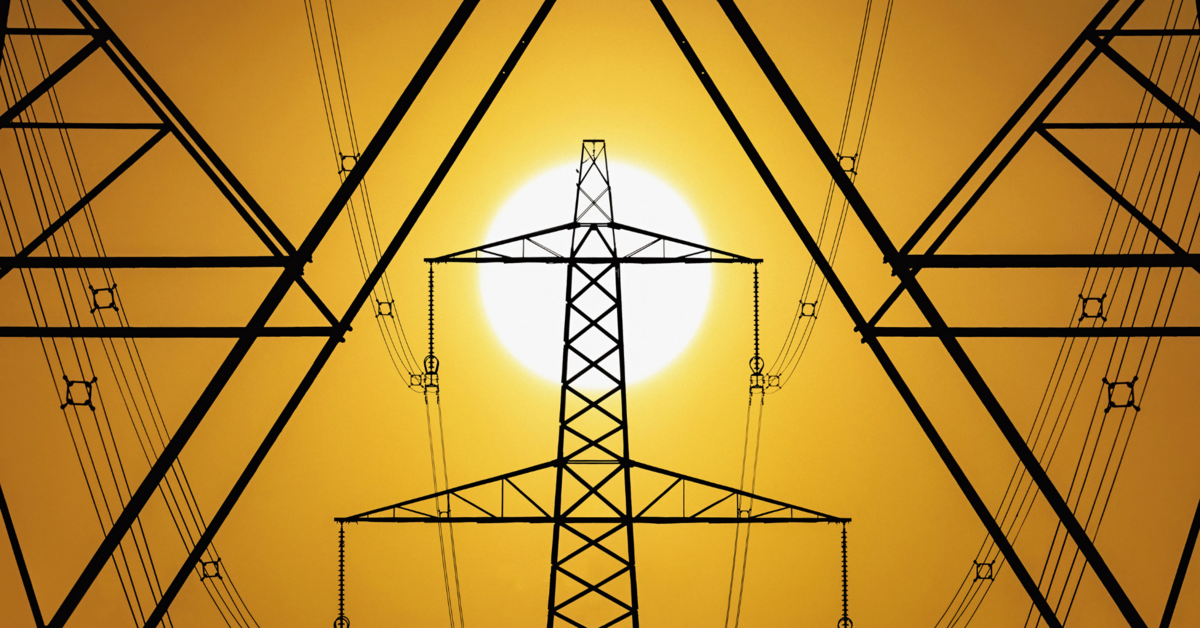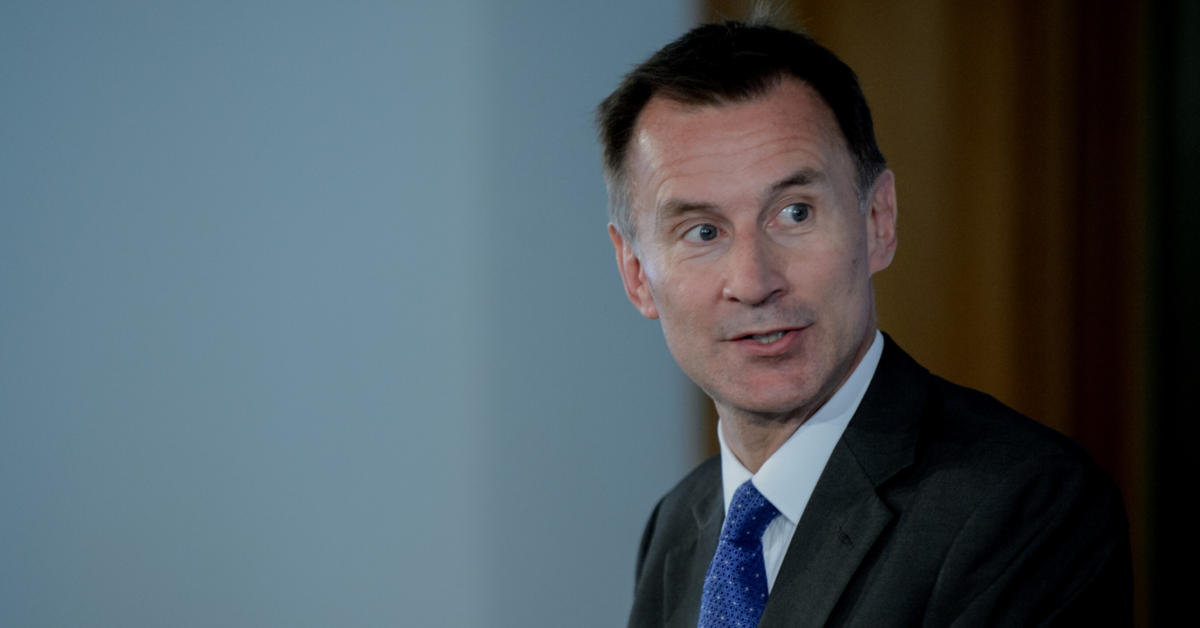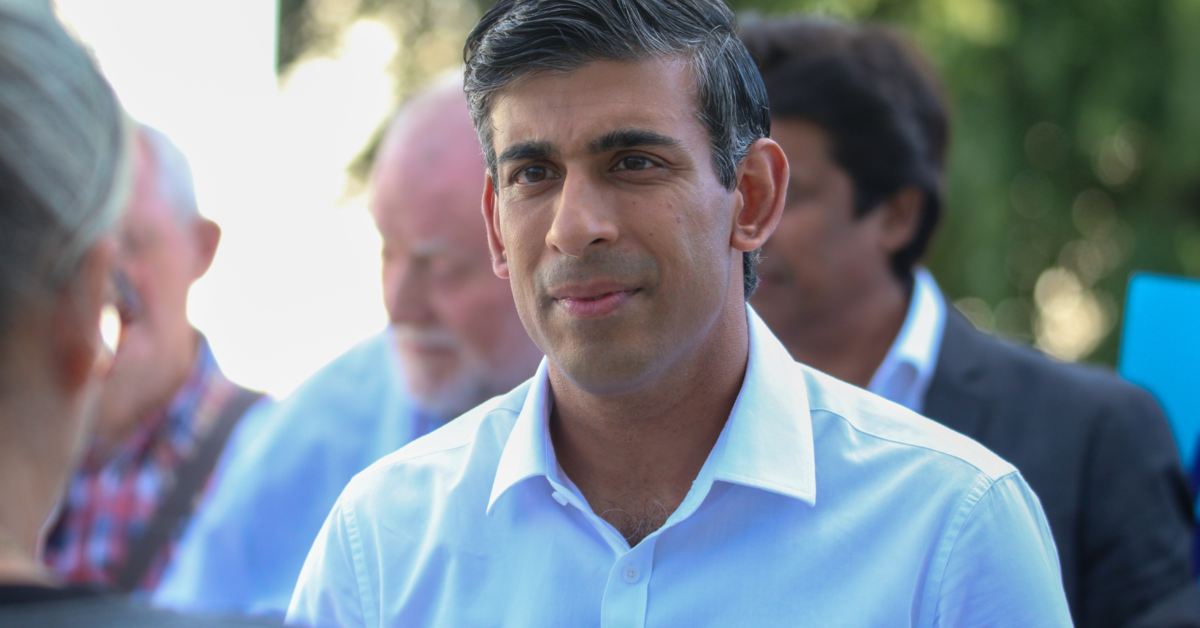Political State of Play
Rishi Sunak has entered No.10 Downing Street with an in-tray that few Prime Ministers would envy. With the economy on the rocks and the Conservative poll rating in the doldrums, Sunak will need to demonstrate action straight away to turn the page on a chaotic six months in politics.
A key question that many are asking is: where do climate policy and the net zero agenda fit into Sunak’s vision for the UK?
The initial view of many is that climate has already been deprioritized by Sunak. On taking charge in Downing Street, he immediately removed the COP President, Alok Sharma, from his Cabinet, moved the Climate Minister out of Cabinet altogether and initially decided to skip attending COP.
In order to understand these machinations, one must first consider that the likely timeline for the next general election is mid to late 2024. Everything Sunak does will be guided by considerations of the electoral implications. As a result, policies that are unlikely to reap immediate dividends, or are likely to expend significant political capital are likely to be junked.
It’s possible that climate policy and achieving Net Zero by 2050 (the UK’s legislative commitment), is something that may be deprioritized as a result. This is compounded by the cost-of-living crisis and pressure on the public finances, with many MPs and commentators concerned about the cost of achieving net zero emissions, and the impact of the associated changes to the economy that will be required over the long term.
Along with this, as a result of Liz Truss’s catastrophic ‘mini budget’ there is a significant hole in the public finances, which is likely going to have to be plugged by cutting public spending and increasing taxes. Anything seen as onerous for the public purse will be paused or punted into the long grass, post-2024.
Many on the Right of the Conservative Party are deeply skeptical about the net zero commitment, and want it watered down or delayed. Given the fractious internal politics of the Conservative Party after two leadership elections in a matter of months, Sunak will be keen to avoid taking action on policy areas that are likely to inflame tensions. Climate policy falls into this basket.
Sunak’s personal views on climate action are very much informed by his time at the Treasury as Chancellor of the Exchequer. He is deeply skeptical of wide-ranging and expensive commitments that tie the hands of government.
The new Chancellor, Jeremy Hunt, is also a fiscal hawk and will not be supportive of any additional expenses incurred when his room for maneuver in the public finances is so limited.
However, it is important to not overinterpret the decisions made by Sunak thus far. Sunak is not a climate sceptic, fully believes that climate change is happening and thinks that action is necessary to safeguard the future of the planet. He believes in the importance of the green economy to future economic growth and will still want to take action to facilitate this.
His decision on Sharma was borne out of circumstance and politics. Sharma backed Boris Johnson for the leadership and is handing over the baton of COP President in Sharm El Sheikh. As a result, there was never going to be a need for him to remain in Cabinet.
Sunak’s decision to stop the Climate Minister attending Cabinet was also more likely to have been about making space around the table for his own allies.
On attending COP, the initial decision not to attend was a kneejerk one and reflected Sunak’s inexperience as Prime Minister. He wanted time to focus on the domestic economic plan, without realizing the statement that his non-attendance will make. He has subsequently reversed the decision, and will now attend, most likely undertaking his first bilateral meetings with Joe Biden and Emmanuel Macron.
Moreover, Sunak’s mandate is derived from the 2019 election and the 2019 Conservative manifesto. The manifesto pledged a strong commitment to tackling climate change, so any wholesale rejection of these pledges will embolden Labour’s calls for a general election. With the poll rating of the Conservative Party slightly improved, yet still poor under Sunak, he will want to avoid an election at all costs.
What next for Sunak on climate?
In many ways, the Prime Minister’s U-turn on attending COP was one of his easier climate policy decisions. It is symbolically important but will not cause as many ructions in the political and energy community as many of the decisions he will soon have to make.
The tough tax and spending choices coming up in the Autumn Statement will also extend to energy policy. The Treasury has mooted both an increase in the rate of the Energy Profits Levy, the windfall tax on oil and gas producers, but potentially also extending it to low carbon electricity generators, which includes renewables such as wind and solar. This would replace the much-criticized Cost-Plus-Revenue Limit, a highly complicated revenue cap mechanism for low carbon generators. It is unclear whether a low carbon generators windfall tax would also be accompanied by the generous investment tax allowance enjoyed by oil and gas producers. If an investment allowance is not included, or the revenue cap is retained, the tax regime would incentivize oil and gas rather than renewables.
The extension of a low carbon generation tax in some form on 18 November is highly likely. The need to find ways to fund the Government’s Energy Price Guarantee for consumers and the Energy Bill Relief Scheme for businesses, introduced under the Energy Prices Act, is acute. These policies to subsidize energy bills are also likely to be extended in some, albeit more limited form, after March next year. Whatever the immediate needs of the Exchequer, Sunak will have to ensure that any tax on renewables that is announced does not discourage the private investment in low-carbon technologies that his climate and energy security strategy is relying upon. Spending on other energy infrastructures such as CCUS and hydrogen may also be negatively impacted by the need to address the fiscal black hole.
After the Autumn Statement, the difficult decisions on climate policy will not go away. Even with the current unseasonably warm weather, the winter is likely to see increasing energy demand. This will add to pressure on household bills and may also put pressure on the energy supply. National Grid have already developed scenario plans should the UK face any unexpected interruptions in supply or if the energy network is found to lack the flexibility and backup generation to respond.
Further, Sunak will have to make a number of decisions upon energy policies introduced by his predecessor, Liz Truss, during her very brief period in No10. He has already made the politically easy decision to reintroduce the moratorium on fracking. Truss, however, has also left some other contentious energy policies, such as her decision to end the Government’s moratorium on onshore windfarms. Onshore wind is one of the UK’s cheapest domestic energy sources and one which can be deployed rapidly. Sunak, however, was explicit during his leadership campaign that he would not allow onshore but focus solely on offshore wind generation. Whether he will act to reverse Truss’s onshore wind reforms, is as yet unclear and another politically difficult decision in his energy in-tray.
Longer term challenges will come into sharp focus very quickly. If Sunak wants to accelerate the infrastructure investment, he has said is needed to address energy security, as well as meeting our net zero commitments, business and institutional investors will quickly need certainty on the Review of Electricity Market Arrangements (REMA). This review was to be implemented by the Energy Security Bill but was placed into an open-ended review under the previous Business Secretary, Jacob Rees-Mogg.
Bringing this legislation out of hiatus and passing the package of energy supply reforms it provides for will provide the energy sector with some clarity on the future direction of travel. Certainty on energy policy, however, will mean little to international and institutional investors, if not accompanied by a period of political and economic stability in the UK as a whole.



